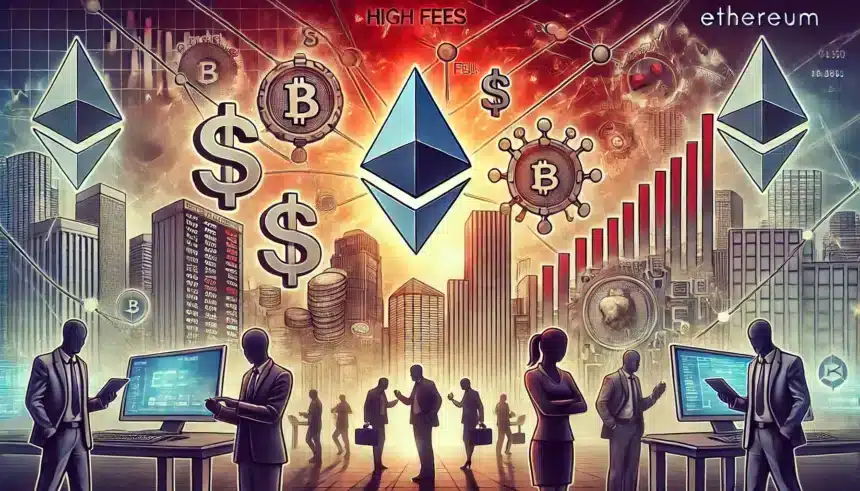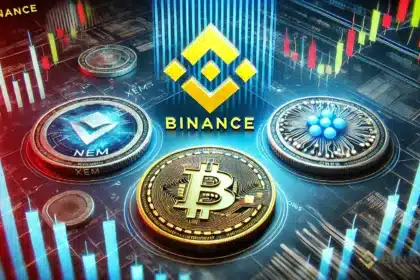Solana has often been associated with meme tokens but what we have been witnessing more recently are traditional financial institutions expressing an interest in constructing on Solana. Contrary to popular opinion where Ethereum is now considered to have institutional utility and Solana to be a memecoin platform, the truth is more complex.
While Solana has also witnessed increased attention from U.S.-related memes, the user base is looking beyond these to build the protocol required for serious finance exploration in microtransactions. Ethereum has historically been the go to for financial institutions. Take for example, BlackRock’s CEO Larry Fink suggests tokenization on Ethereum, having launched a tokenized fund, BUIDL, on the blockchain.
Solana’s Emerging Role in Traditional Finance and High-Net-Worth Investments

Ethereum’s reputation for working with stablecoin and decentralized finance (DeFi) are key; as is its established position in the crypto world and strong developer community..And as CIO at Bitwise, Matt Hougan said that for institutional security institutions like this, Ethereum’s dominance means that you know the move to Ethereum has been proven to work.
Still, the unique qualities of Solana are beginning to interest traditional finance (TradFi). While institutional adoption is still in its early stages, said Hadley Stern, Chief Commercial Officer at Marinade Finance and former head of digital asset custody at BNY Mellon, many high-net worth individuals and asset managers are keen on staking on Solana. Marinade Finance is already preparing itself for that demand and Stern says there’s space in the Solana environment for this new type of financial products.
Seeing this trend, the 2023 Breakpoint conference made it so clear in September. Recently, companies like Franklin Templeton, Citibank and Société Générale began to announce projects on Solana, which is a huge indication that people are finally starting to see SOL as a possibility. Tristan Frizza, founder of Zeta Markets, a Solana based decentralized exchange, said he was surprised to see so many institutions adopting SOL. “There is some crazy stuff going on, institutionally,” he said, alluding to the growing breadth of what the platform can do.
What financial institutions find appealing in SOL is its ability to support a large volume of transactions at low cost, making it particularly attractive to high frequency use cases such as real time payments or trading. Sol Strategies CEO Leah Wald says that the fees on Ethereum can’t be predicted from a long-term institutional perspective.
Ethereum’s High Fees: A Challenge for Long-Term Institutional Adoption

However, high transaction fees have been a thorn in the side for Ethereum, which has the regulatory clarity of ether ETFs in the U.S. (and approval by the SEC). Ethereum’s ‘good enough’ is good enough for some institutional projects, but those that need lightning fast transaction speeds might be better off with Solana, Wald said.
Solana converges a flexible and powerful tech stack with a passionate and productive developer community, powering innovation and new use cases with scalable, user-friendly solutions. SOL could become a force among institutional projects that are emerging in crypto markets. Unlike Ethereum, it doesn’t need to tackle the same complex roadmap while waiting on layer 2 solutions for scalability. This makes SOL’s simple architecture more attractive to companies who want to avoid Ethereum’s increasingly complex architecture.
However, regulatory standards remain far apart. SOL, on the other hand, is currently enjoying the clarity from U.S. regulators that Ethereum is experiencing, but may take some more time before similar recognition as an ETF, for instance. This case of SOL, epitomizing the blockchain’s growth of combining flexibility and strategy that attract different users as well as institutional interest, reflects SOL’s transformation from memecoins into finance.
Conclusion
Finally, Solana’s metamorphosis from memecoin hub to an institutional darling showcases its shift in blockchain. Solana offers a viable alternative to Ethereum, with high-speed, low-cost transactions, on top of increasing developer community, making it ideal for the financial industry projects that require scalability and efficiency.
Stay tuned to TheBITJournal and keep an eye on Crypto’s updates. Follow us on Twitter and LinkedIn, and join our Telegram channel to be instantly informed about breaking news!





























